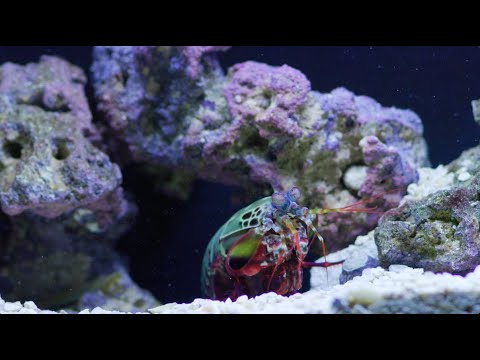Summary:
1. The Importance of the Ocean: The ocean is vital for survival as it provides oxygen, moderates the climate, and covers 72 percent of the Earth’s surface.
2. Marine Biodiversity: The ocean is home to various fascinating and unique marine species, including colorful coral reefs, majestic whales, and mysterious deep-sea creatures.
3. Threats to the Ocean: Human activities such as pollution, overfishing, and climate change pose significant threats to the health of our oceans and marine life.
4. Conservation Efforts: Several organizations and initiatives are working towards protecting and preserving the ocean, and individuals can contribute by adopting sustainable practices and supporting conservation projects.
5. Taking Action: Everyone has a role to play in safeguarding our ocean, from reducing plastic consumption to spreading awareness about the importance of marine conservation.
The Look Closer: Exploring the Fascinating World of the Ocean
The ocean is not just a vast body of water that stretches as far as the eye can see; it is our life support system, a mesmerizing realm teeming with wonders. Covering 72 percent of the Earth’s surface, the ocean moderates our climate and supplies over half the oxygen we need to survive. It is home to an awe-inspiring array of marine life, from the delicate beauty of coral reefs to the colossal presence of whales. In this article, we will delve into the unique and fascinating aspects of the ocean, highlighting its importance, marveling at its biodiversity, discussing its threats, and exploring the conservation efforts to protect it.
The Importance of the Ocean: Our Lifesaver
Imagine a world without oxygen, without the ability to breathe. It is a chilling thought, but the ocean saves us from this fate by producing more than half of the oxygen we breathe. Through photosynthesis, marine plants, such as phytoplankton and kelp, convert carbon dioxide into oxygen, ensuring its constant supply. Additionally, the ocean is a climate moderator, absorbing vast amounts of heat and redistributing it, regulating temperature across the planet. This action helps prevent extreme weather conditions, making the ocean a vital stabilizer for our climate.
Marine Biodiversity: A Cornucopia of Life
Take a closer look beneath the ocean’s surface, and you’ll find a realm teeming with fascinating creatures and ecosystems. Coral reefs, also known as the rainforests of the sea, are among the most biodiverse habitats on Earth, hosting a mind-boggling array of colorful fish, mesmerizing corals, and intricate symbiotic relationships. These delicate structures provide protection and sustenance to thousands of species, an ecosystem of beauty and interconnectedness.
Venture further into the deep sea and discover an alien world beyond imagination. Here, where sunlight cannot penetrate, ethereal creatures thrive under unimaginable pressure and extreme conditions. From anglerfish with their glowing lures to the elusive giant squid, the deep sea is a domain of mystique and evolutionary wonders.
They are not forgetting the charismatic megafauna that graces the ocean’s surface – whales. These gentle giants, ranging from the majestic blue whale to playful dolphins, captivate us with their size, gracefulness, and intelligence. Their enigmatic songs fill the ocean with a symphony that echoes through the vast blue expanse.
Threats to the Ocean: A Call to Action
While the ocean is a source of intrigue and inspiration, it is also threatened by various human activities. Pollution, particularly plastic pollution, suffocates the oceanic ecosystems, endangers marine life, and potentially impacts human health. Overfishing, driven by the demand for seafood, is depleting fish populations and destabilizing marine food webs. The warming of the ocean due to climate change leads to the bleaching of coral reefs, causing irreversible damage to these fragile havens of marine biodiversity.
Conservation Efforts: Protecting Our Blue Planet
Thankfully, numerous organizations and initiatives are working tirelessly to protect and preserve our oceans. From research institutions focusing on understanding marine ecosystems to conservation projects aiming to restore damaged habitats, these efforts are essential to safeguarding the future of our blue planet.
Every individual can contribute to marine conservation. When we reduce our plastic consumption, we prevent it from entering the ocean and endangering marine animals. Supporting sustainable fishing practices and choosing seafood from certified sources can help protect vulnerable fish populations. By spreading awareness about the importance of the ocean and participating in beach clean-ups, we inspire others to take action.
Taking Action: Empowering Change
The ocean is our life support system, and it is up to us to protect it. Each action, no matter how small, has an impact. By becoming more mindful of our choices, educating others about the ocean’s significance, and supporting conservation initiatives, we can ensure a flourishing future for the mesmerizing world beneath the waves.
In conclusion, the ocean is much more than a vast body of water. It is our lifeline, essential for our survival. Its fascinating biodiversity captivates and inspires us. However, it is under threat, and our responsibility is to act. Let us look closer at the ocean, appreciate its wonders, and take action to protect it. We can safeguard this treasure and ensure a thriving marine ecosystem for generations.
Subscribe to our YouTube channel, where you can delve deeper into the mysteries of our amazing blue planet and, most importantly, discover how you can actively contribute to its protection. Remember, the ocean is our life support system and needs our help.
*****
Source Description
The ocean is our life support system. It covers 72 percent of the Earth, moderates our climate and supplies us with over half the oxygen we need to survive.
Subscribe to our YouTube channel to learn more about our amazing blue planet and what YOU can do to protect it: http://ow.ly/EGnl1.
MB01PIEAO1AX3MW

